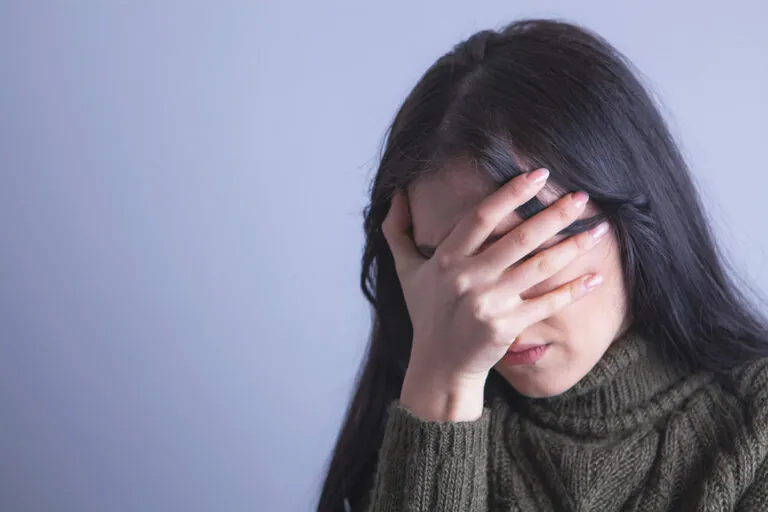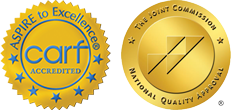Depression Treatment Programs in Washington State
Depression is a widespread mental illness that affects individuals of all ages and backgrounds, making it a significant concern in global healthcare. Globally, over 250 million people experience depression, and in the United States, it impacts approximately 8% of the population. Women are particularly vulnerable, being twice as likely as men to suffer from clinical depression. This condition is a leading cause of disability and suicide worldwide, but it’s crucial to remember that depression is treatable. Various effective psychotherapies and pharmacological treatments are available, and for those with severe depression or co-occurring conditions like substance abuse, inpatient rehab may be necessary.
In this article, we discuss:
- What is Depression?
- Causes of Depression
- Symptoms of Depression
- Types of Depression
- Depression Treatment Programs
What Is Depression?
Depression is a complex medical condition characterized by persistent feelings of sadness, hopelessness, helplessness, and even anger, often leading to decreased self-esteem. These emotions are often intense enough to interfere with daily activities, leading to lost productivity at work and strained relationships. Furthermore, untreated depression can exacerbate chronic health conditions such as obesity, diabetes, cardiovascular disease, asthma, arthritis, and cancer, making timely treatment essential.
At its core, depression differs from ordinary sadness. While it’s normal to feel sad in response to life events such as a divorce, job loss, or exam failure, these feelings typically subside over time. Major depression, however, is a mental disorder marked by mood changes or depressive episodes that last for more than two weeks and are often accompanied by other symptoms that can be overwhelming and persistent, requiring specialized behavioral health treatment. For those with severe depression, especially when combined with conditions like substance use disorders, specialized treatment such as inpatient rehab at a dual diagnosis facility or management through primary care and psychiatrists may be necessary.
Other minor depressions like Seasonal Affective Disorder (SAD) are not as chronic as major depression but can still impact daily life. Environmental factors like cold weather, lack of sunlight, lack of exercise, and poor diet can impact mental health but are more easily remedied through consistent life changes and not so much long-term clinical issues like brain chemical imbalances.
Causes of Depression
The causes of depression are multifaceted and can include genetic, biological, environmental, and psychological factors. A family history of mood disorders, particularly among first-degree relatives, increases the risk of developing depression or other mood disorders like bipolar disorder. Additionally, early childhood trauma can have lasting effects, potentially altering how individuals respond to stress and predisposing them to depression later in life.
Interestingly, research has shown a structural component to depression; individuals with a smaller frontal lobe volume and imbalances in neurotransmitters like serotonin may be at higher risk for the condition, though the reasons for this are not yet fully understood. Chronic medical conditions such as pain, insomnia, and long-term illnesses also contribute to the likelihood of developing depression. Alcohol and drug use are significant risk factors as well, with studies indicating a strong link between substance abuse and depression.
Recognizing the Symptoms of Depression
Depression manifests in various ways, with symptoms that may be constant or intermittent. Common symptoms include mood changes like anger, anxiety, irritability, and emotions such as sadness, hopelessness, and helplessness. Physical symptoms may also arise, such as indigestion, weight fluctuations, headaches, and chronic pain. Additionally, individuals with depression often experience sleep disturbances, decreased libido, difficulty concentrating, sometimes perform self-harm, and even consider suicide.
Given the wide range of symptoms, it’s crucial for individuals, including adolescents, who suspect they might be experiencing depression or anxiety disorders to seek treatment from healthcare professionals promptly. To treat depression effectively, both outpatient and residential treatment options can significantly improve the quality of life, particularly for those with co-occurring substance use disorders.
Do you have a loved one struggling with addiction?
We know how hard that can be. Give us a call to find out what options you have.
Symptoms of Depression
Depression is more than just a constant state of feeling blue. It can be associated with a variety of symptoms, some of which may be constant, and others may come and go. Some of the most common symptoms treated at Washington rehabs include:
- Mood changes such as anger, restlessness, anxiety, aggression, irritability
- Emotions like sadness, hopelessness, helplessness
- Loss of interest in previously enjoyed activities
- Suicidal ideation (thinking about suicide)
- Decreased libido (sexual desire) or problems with sexual performance
- Difficulty concentrating and completing tasks, indecisiveness
- Sleep disturbances, including insomnia, non-restful sleep, or excessive sleepiness
- Physical symptoms like indigestion, weight loss/gain, headache, fatigue, pain
- Using drugs or drinking excessively
- Difficulty making decisions or foggy thinking
People who have one or more of these symptoms should not delay seeking care. Outpatient or residential treatment in Washington State, when combined with a treatment plan and support group, can improve quality of life and help in successfully managing the symptoms. Inpatient rehab is especially effective in people who have depression accompanied by drug abuse, and in some cases, brain stimulation therapies may be considered.
Types of Depression
Depression is categorized into different types based on the severity and duration of symptoms. The two most common forms are:
- Major Depressive Disorder (MDD): A severe type of depression characterized by five or more symptoms that persist for more than two weeks.
- Persistent Depressive Disorder (PDD): A milder but longer-lasting form of depression where symptoms persist for two years or more.
- Seasonal Affective Disorder (SAD): A type of depression that occurs at a specific time of year, usually in the winter months when there is less natural sunlight.
Seeking treatment for depression is critical, especially given the increased risk of suicide associated with mood disorders. In fact, nearly four out of ten people who die by suicide have a mood disorder like depression, and many young people who take their own lives also struggle with substance use disorders.
Depression Treatment programs in Washington State
For those in Washington State seeking help, there are numerous treatment options available, including those offered by Discover Recovery. Although Discover Recovery is not an exclusive depression treatment center, we offer effective treatments through comprehensive plans that address both depression and co-occurring substance use disorders. Their team of experienced mental health professionals, including board-certified physicians, counselors, and registered nurses are dedicated to helping clients manage their symptoms and regain control of their lives.
Discover Recovery employs a holistic approach to treatment, offering both outpatient and residential programs tailored to the individual’s needs, ensuring the appropriate level of care for each client. In addition to traditional medication management, Cognitive Behavioral Therapy (CBT), and psychotherapy, we also provide group therapies, family therapy, and individual therapies as well as talk therapy and other alternative therapies designed to support clients and their support systems’ overall well-being.
Depression is a serious but treatable condition, and understanding the available treatment options is the first step towards recovery. Whether you’re dealing with depression alone or alongside a substance use disorder, seeking help can significantly improve your quality of life. Discover Recovery, while not exclusively a depression treatment center, offers valuable resources and expert care for those struggling with depression and addiction. If you or a loved one needs help, consider reaching out to Discover Recovery to explore the addiction treatment options that best suit your needs.





